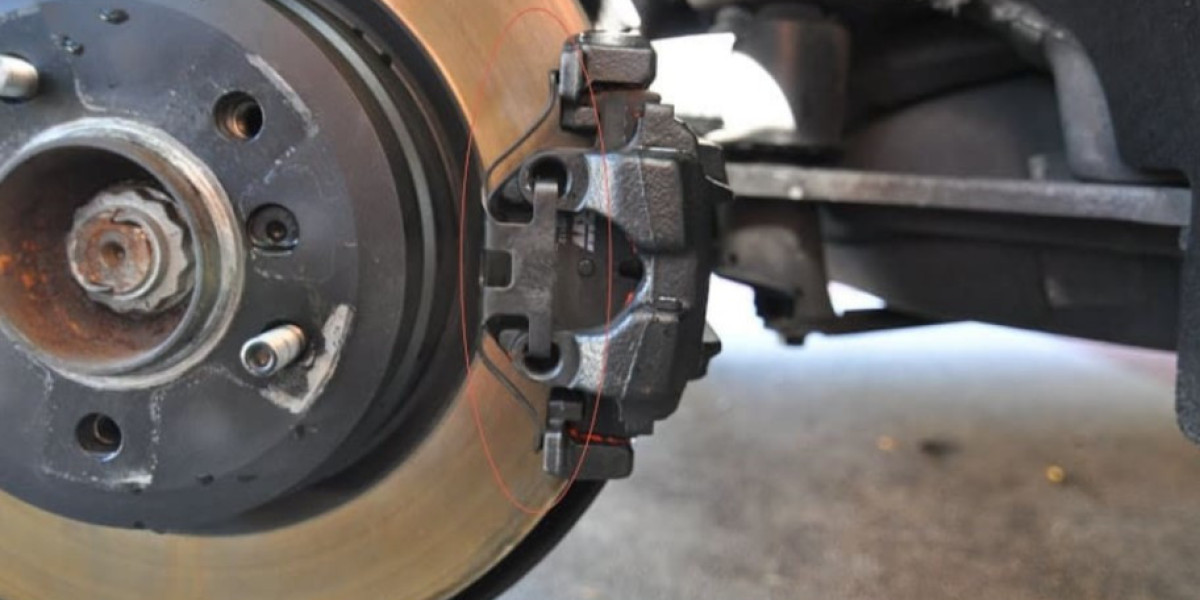When it comes to maintaining the performance and safety of your BMW, one of the most crucial components to focus on is the brake system, particularly the brake pads. Whether you're driving a sporty BMW M3 or a luxury 7 Series, quality brake pads ensure not only smooth stopping but also provide the peace of mind that you can rely on your vehicle when it matters most. In this blog, we'll delve into everything you need to know about BMW brake pads Santa Rosa, from how they work to when they need replacement and what options are available for your specific model.
How BMW Brake Pads Work
Brake pads are an essential part of your car's braking system. Their job is to apply friction to the brake rotors (also known as discs), which slows down or stops the vehicle. When you press on the brake pedal, hydraulic fluid pushes the calipers, which squeeze the brake pads against the rotors. This friction converts kinetic energy into heat, slowing your vehicle down safely and efficiently.
Why High-Quality Brake Pads Matter
BMWs are engineered for precision, performance, and luxury, so its no surprise that the quality of the brake pads can impact everything from driving experience to safety. Low-quality or worn-out brake pads can lead to longer stopping distances, brake noise, and even damage to the brake rotors. This is why investing in high-quality brake pads designed specifically for your BMW is essential.
OEM (Original Equipment Manufacturer) brake pads, such as those made by BMW or trusted manufacturers like Brembo, are designed to meet the high standards set by the brand. They offer optimal performance, noise reduction, and longevity, making them a solid choice for your BMW.
Types of BMW Brake Pads
There are several types of brake pads available for BMWs, and the right one for your car depends on your driving habits and needs.
1. Ceramic Brake Pads
Ceramic brake pads are known for their durability and low noise. They produce less dust, which means cleaner wheels, and they perform well under a wide range of temperatures. This makes them ideal for everyday driving or luxury BMW models like the 5 Series or X7.
2. Semi-Metallic Brake Pads
Semi-metallic brake pads contain a blend of metals like copper and iron, offering a higher level of performance in extreme conditions. These pads provide excellent stopping power and are typically used for high-performance models like the BMW M4 or in situations where aggressive driving is the norm. However, they tend to produce more brake dust and can wear down rotors more quickly.
3. Organic Brake Pads
Organic brake pads are softer and made from materials like rubber and resin. While they offer a quieter and more comfortable braking experience, they tend to wear out faster than ceramic or semi-metallic pads. These are typically not recommended for high-performance BMWs, but they can be an affordable option for older models or daily drivers.
Signs Your BMW Brake Pads Need Replacement
BMW brake pads are built to last, but like all components, they wear out over time. Here are some signs that your brake pads may need replacing:
- Squeaking or Squealing Sounds: This is usually the first sign that your brake pads are wearing thin.
- Vibration When Braking: If your steering wheel or brake pedal vibrates when applying the brakes, your brake pads may be unevenly worn or damaged.
- Longer Stopping Distance: Worn-out brake pads can reduce your cars braking efficiency, leading to longer stopping distances.
- Brake Warning Light: Modern BMWs are equipped with sensors that will trigger a warning light on your dashboard when it's time to replace your brake pads.
How Often Should You Replace BMW Brake Pads?
The lifespan of your BMW brake pads depends on several factors, including driving habits, road conditions, and the type of brake pad material. Generally, you should expect to replace your brake pads every 30,000 to 70,000 miles. High-performance pads may wear out more quickly due to their aggressive nature, while ceramic pads can last longer, especially for daily commuting.
Its essential to follow your vehicle's maintenance schedule and consult a certified BMW technician to ensure that your brake system remains in top condition.
OEM vs. Aftermarket Brake Pads: Which is Better?
When its time to replace your BMW brake pads, you'll be faced with the choice between OEM brake pads and aftermarket options.
OEM Brake Pads: These pads are designed specifically for your BMW model and offer the same performance and quality as the factory-installed pads. While they may cost more upfront, they guarantee proper fit, longevity, and braking performance.
Aftermarket Brake Pads: These pads are made by third-party manufacturers and may vary in quality. Some premium aftermarket pads can outperform OEM options, especially for specific driving conditions, while others may not provide the same level of durability or performance. If you choose aftermarket pads, its important to do your research and select trusted brands.
Conclusion: Keep Your BMW Safe and Smooth
Your BMW deserves the best, and that includes investing in high-quality brake pads that ensure both safety and performance. Whether you opt for OEM or high-performance aftermarket brake pads, its crucial to choose the right type for your driving style and needs. Regular brake maintenance will not only prolong the life of your brake system but also keep you safe on the road.
If you're unsure which brake pads are best for your BMW, consult with a certified BMW technician to guide you through the process and help you make an informed decision. Remember, your brakes are one of the most important components of your vehicle, and investing in quality can make all the difference in your driving experience.







